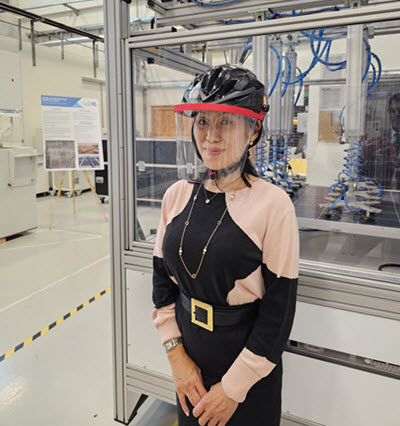
Five years ago, Dr. Geoffrey Hicks, Director of Health, Safety, Security and Environment at Qatar Environment and Energy Research Institute (QEERI), Hamad Bin Khalifa University (HBKU), had an innovative idea to improve breathing protection for cyclists in Qatar. As he pursued the idea and worked on potential solutions, the world was hit by the COVID-19 pandemic.
“This is when I realized that personal breathing protection was essential in a much broader sense, and I began digging deeper into the issue of microparticulate air pollution,” Dr. Hicks recalled.
According to a World Bank report, the cost of health damage caused by air pollution amounts to $8.1 trillion USD a year – equivalent to 6.1 percent of global GDP. Additionally, the World Health Organization (WHO) says that 6.7 million premature deaths occur every year due to air pollution.
Research insights and his own personal experience with breathing sensitivities causing occasional hospitalizations, prompted Dr. Hicks to create the first prototype – a simple, wearable cap with a visor and an air filtration system to protect people from micro particulates, including airborne allergens and pathogens.
 “The first version we built was similar to a baseball cap, but the trouble was that it was a bit weighted at the front,” Dr. Hicks described. While the device utilized a compact air filtration system, understanding ways to improve its design and learning how to reach potential customers was key at this stage of Dr. Hicks and his teams’ innovation journey.
“The first version we built was similar to a baseball cap, but the trouble was that it was a bit weighted at the front,” Dr. Hicks described. While the device utilized a compact air filtration system, understanding ways to improve its design and learning how to reach potential customers was key at this stage of Dr. Hicks and his teams’ innovation journey.
With this ambition in mind, Dr. Hicks and his business partner, engineer Majdi Albaghdadi, who also works at QEERI, joined Cycle 13 of Qatar Science and Technology Park’s (QSTP) XLR8 program in 2022 where they received mentorship and training to improve the product – now called ‘RESPO2.’ The training allowed them to refine the business model, build customer traction, and launch the go-to-market strategy.
“We essentially went back to the drawing board with XLR8 and received some great feedback and learned a lot,” Dr. Hicks said. “We had the chance to practice our pitch, listen and learn from other participants, self-reflect and also critique constructively.”
In addition to learning from peers during XLR8, Dr. Hicks appreciated the mentorship from industry leaders, many of whom were successful entrepreneurs. “Before joining XLR8, we were entirely focused on the innovative product and lacked the know-how of setting up the business or the marketing approaches to consider. The mentors really opened our eyes to the possibilities,” he said. “This kind of knowledge exchange and developing the right mindset to continually improve your offering can be critical to achieving success.”
According to Dr. Hicks, the insights from the program led to further enhancements to RESPO2. In comparison to its previous variations, the current version is much lighter so it can be easily worn over cycling helmets. The visor features Z87 polycarbonate – a material 200 times stronger than glass – making it virtually shatterproof, and it now has a hinge system allowing the user to pull up the visor easily. RESPO2 employs High Efficiency Particulate Air (HEPA) filtration to ensure that each breath the user takes is filtered and ultraclean.
Mohammed Zebian, Program Manager – Acceleration at QSTP, commented: “In arid regions such as the Middle East, the health challenges around airborne pathogens and dust allergies are persistent. Innovation can play an important role in helping tackle the issue and so we need innovators like Dr. Hicks and his team to develop solutions such as RESPO2 that have potential for real-world impact. However, often innovators lack the experience to make progress as an entrepreneur, and this is where our XLR8 program offers essential guidance.”
Initial market surveys conducted by the startup reveal significant interest from parents with children suffering from asthma, Dr. Hicks mentioned. The RESPO2 team is using the knowledge gained from XLR8 to plan the next steps toward commercializing the product, which will include addressing manufacturing, marketing and distribution needs.
As Dr. Hicks remains keen to offer the solution commercially, he advises aspiring innovators to believe in the power of their creativity. “People need to start believing that solutions can come from any one of us.” He also encourages them to explore their ideas with all the resources available to them, such as advanced courses and programs like XLR8. “We need our creators and our innovators to put their minds together. It is so important to be around inspiring people and receive guidance from those with experience.”
However, when it comes to innovation, money must not be the only motivator, Dr. Hicks stressed. “If you have a tremendous gift to bring to the world – through your innovation – you will already feel rewarded. You have to think of the wider good.”
Cycle 14 of the XLR8 program by QSTP – who is, along with HBKU, a member of Qatar Foundation – will start from December 27, 2023. To learn more about XLR8, please visit: https://qstp.org.qa/xlr8/
